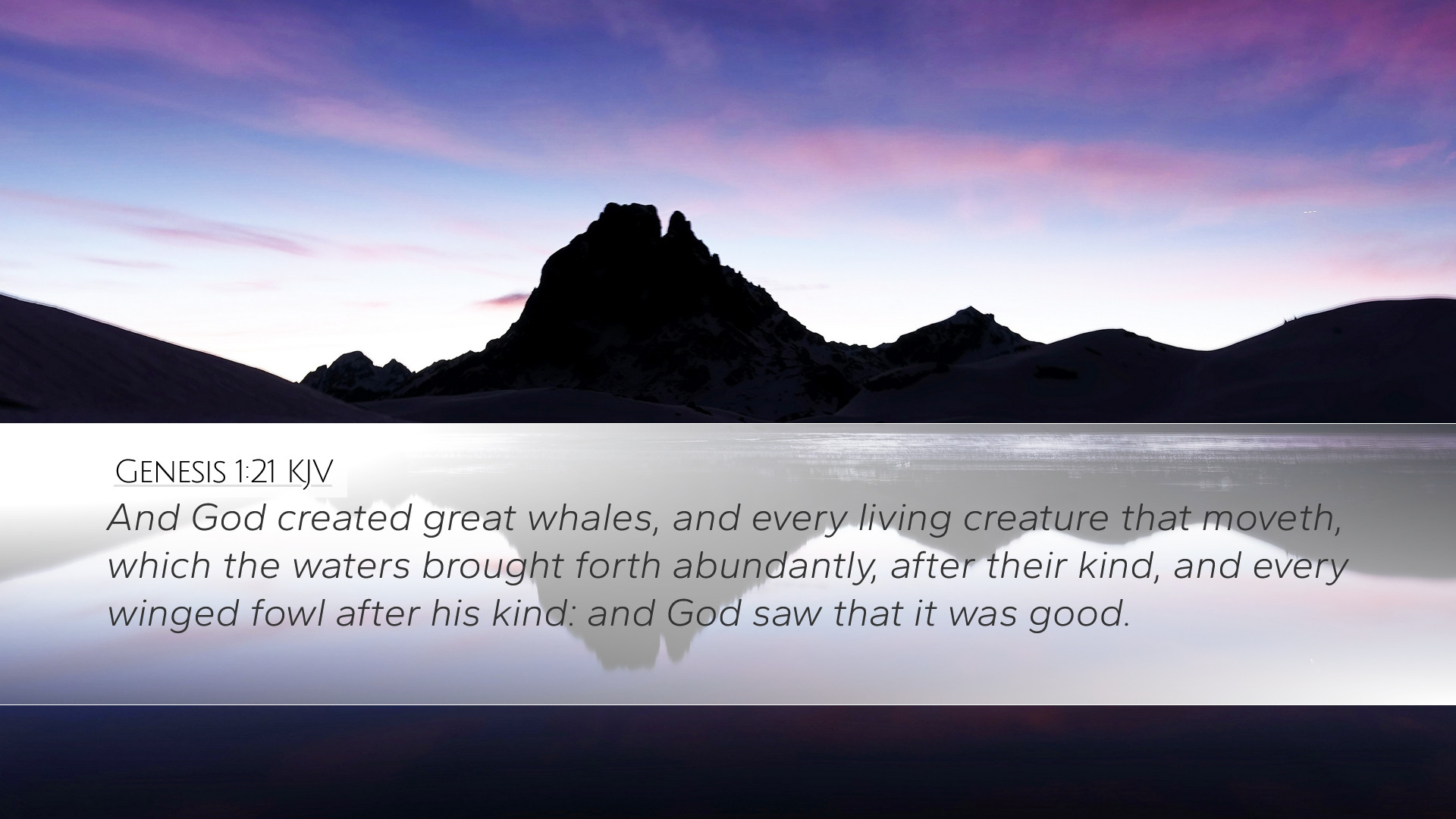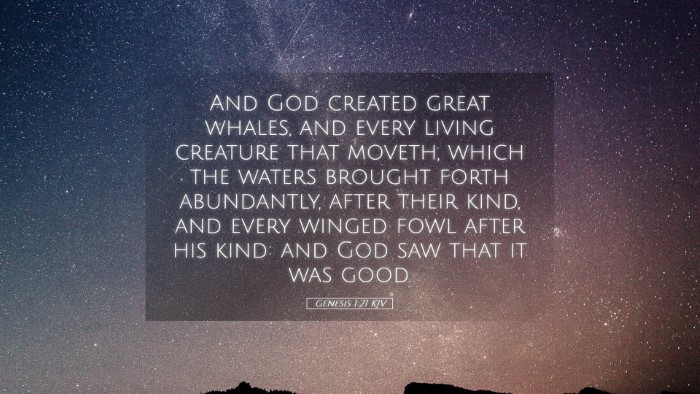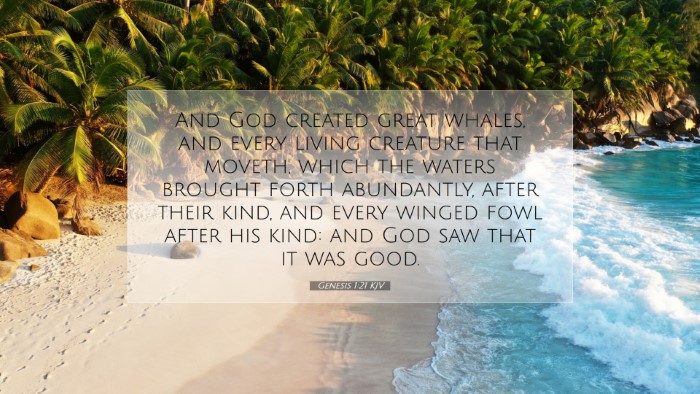Commentary on Genesis 1:21
Genesis 1:21 states: "So God created the great sea creatures and every living creature that moves, with which the waters abounded, according to their kind, and every winged bird according to its kind. And God saw that it was good." This verse marks significant developments in the creation narrative, particularly concerning the life within water and the element of air.
Overview of Creation
The verse reflects God's creative power and authority over all living beings. It is part of the broader account of the creation week, illustrating the methodical way in which God ordered creation. This particular day focuses on aquatic and avian life, denoting the diversity and the distinct kinds that God established.
1. The Great Sea Creatures
Commentators such as Matthew Henry emphasize that "the great sea creatures" refer to the vast variety of life in the oceans, including both great whales and smaller creatures. This includes a divine approval of the complexity and expanse of aquatic life. The Hebrew word used here can suggest both size and great variety:
- Majestic Nature: The word 'great' indicates both size and splendor, shedding light on the grandeur of God’s creation and His infinite wisdom in creating such diverse forms of life.
- Symbol of Power: The sea often symbolizes chaos and power in the ancient Near Eastern context, and God's dominion over it speaks to His sovereignty.
2. Every Living Creature that Moves
Genesis 1:21 highlights that all living creatures that move in the waters were created "according to their kind." Albert Barnes comments that this phrase reinforces the idea of God's creative order:
- Divine Classification: The categorization of creatures after their kinds indicates a purposeful design by God, highlighting the wisdom inherent in biological diversity.
- Continuity in Creation: It assures us that creation is guided by a divine plan wherein each creature fulfills a specific role in the ecosystem.
3. The Winged Birds
Following the creation of sea creatures, God also created the "winged birds," which emphasizes the life that thrives in the air. Adam Clarke notes that birds are a vital link between the earth and sky:
- Symbol of Freedom: The act of flying is often seen as a metaphor for freedom; birds are seen as symbols of the spirit and the divine.
- Role in Ecosystem: Birds play a crucial part in pollination and seed dispersal, showcasing the interconnectedness of creation.
God's Evaluation of Creation
After creating these creatures, God proclaimed that "it was good." This declaration, found repeatedly in Genesis 1, serves several important purposes:
- Theological Significance: This affirmation exemplifies God's satisfaction with His work, conveying that creation is inherently good and reflects His glory.
- Humans' Responsibility: Such assessments prompt humanity to appreciate and steward creation, acknowledging that the world operates according to divine order and intention.
- Foundation of Morality: The intrinsic goodness of creation provides an anchor for moral reflection, suggesting that what God has made should be valued, preserved, and not misused.
The Implications for Today
This verse holds immense relevance for pastors, theologians, and Bible scholars today. Its implications span various fields, including environmental stewardship, the significance of creation, and the theological understanding of God's nature:
- Environmental Stewardship: The acknowledgment that creation is "good" urges a response of care and responsibility towards the environment.
- Creation Theology: Understanding this scriptural foundation encourages deeper reflection on the nature of God as Creator and His continued involvement in sustaining creation.
- Cultural Impact: As issues of biodiversity and climate change embroil modern society, Genesis 1:21 provides a biblical basis for advocacy and active engagement in the protection of the ecosystem.
Conclusion
In summary, Genesis 1:21 offers profound insights into the nature of God, the intricacies of His creation, and the responsibilities assigned to humankind. By studying this verse in the light of esteemed public domain commentaries, we grasp not only the historical and theological significance of this passage but also its enduring relevance for our understanding of life and stewardship in our modern context.


